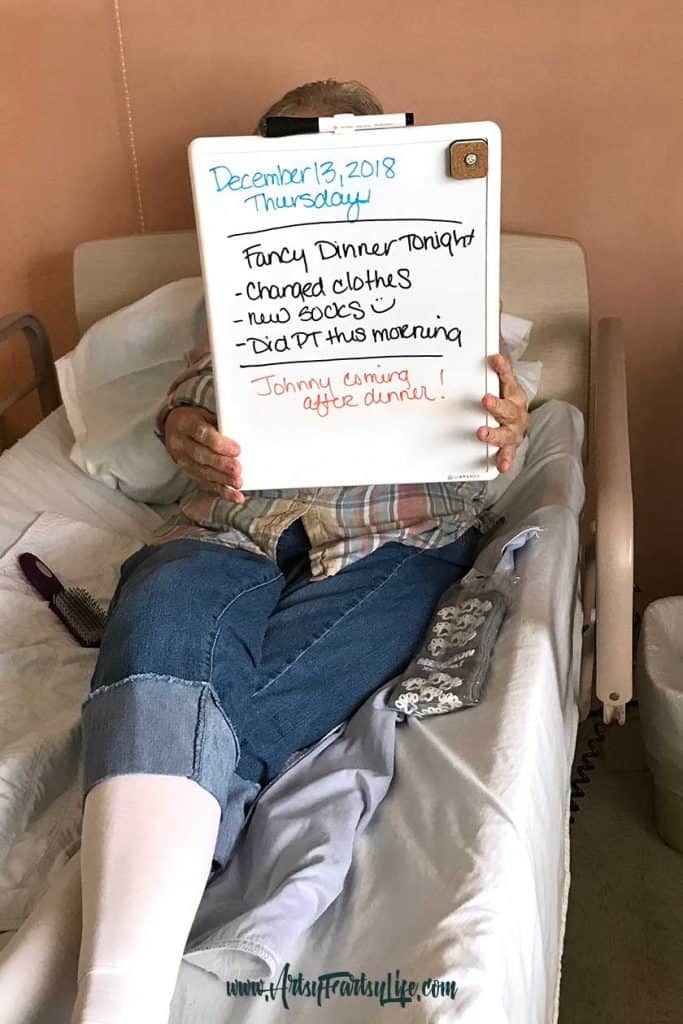One of the earliest and most persistent symptoms of Alzheimer’s disease is memory loss—and with that comes one of the most common frustrations caregivers face: the same questions, asked over and over again!

Disclosure: Some of the images used in this post are AI and some are pics of my own Mother In Law.
You might answer kindly the first few times, but by the tenth—or twentieth—repetition, it’s natural to feel worn thin!
One of the peeps wrote in about her mother who asked where her (long-passed) husband was nearly every hour. Each time she heard the question, she had to make a decision: Should she remind her mom of his passing, risking fresh heartbreak, or redirect with a comforting answer that didn’t bring new pain?
That’s the daily emotional tightrope Alzheimer caregivers walk. So how can you respond in a way that supports the person you love—and keeps our own sanity intact?
Additional Resource: Dealing With Lying To Your Dementia or Alzheimers Loved One
Here are five real life experience-based tips for navigating those repetitive loops with more grace and less guilt!
1. Stay Calm—Even When Your Patience Is Tested
This sounds obvious, but it’s the hardest part!
When someone you care for asks the same question over and over, it can feel like they’re not listening—or worse, like they’re doing it on purpose. But with Alzheimer’s, the question likely feels brand new to them every time. The part of the brain that retains short-term memory simply isn’t functioning.
A caregiver once told me, “It’s like every question is Groundhog Day for them. For me, it’s the hundredth time. But for her, it’s always the first.”
When you feel frustration creeping in, try taking a deep breath before responding. Use a soft, reassuring tone. You don’t have to feel calm to sound calm—and the way you respond can help soothe anxiety, which often fuels the repetition!
2. Create Visual Aids to Answer Frequent Questions
One of the most effective ways to deal with repetitive questions is to preempt them with visible reminders. This can be as simple as a sticky note on the fridge or a whiteboard in the hallway.
Some examples:
- “Today is Wednesday.”
- “Dinner is at 6 PM.”
- “We are home and safe.”
- “Mom and Dad are in heaven now.” (Use with caution, depending on emotional response.)
Pointing to the note can be a helpful routine. It can also reduce the emotional load on you—you’re not “answering again,” you’re simply showing them where to look.

This worked great early on when Mom was in the hospital or rehab center and we couldn't be around all the time! Now that she is in assisted living we still do it, but she has no real frame of reference for what day (or even month) it is... sigh.
3. Redirect With Care—Not Dismissiveness
Sometimes, no matter how many answers you provide (verbally or visually), the loop continues. That’s when redirection can be your best tool.
Instead of saying, “You already asked that,” try saying something like:
“Let’s have some tea,” or
“Tell me about your favorite person” or
“Come look at this photo—this was a fun day!”
Redirection isn’t about ignoring them. It’s about gently guiding their attention elsewhere. Often, the repetitive question is a signal of unmet needs: boredom, fear, anxiety, or confusion.
A caregiver once shared how playing old jazz music helped stop the loop of questions for her father. The rhythm and familiarity settled his nerves. Try experimenting—music, a walk outside, folding towels together—anything calming and non-confrontational can help shift their mental state!
I often talk to Mom about her past life... when she worked at the first Target, her sister's husband who was especially nice to her as a young child. Functionally things I know about her way back that she might still remember!
4. Keep Answers Short and Reassuring
Long, detailed explanations often make things worse! Keep your answers short and sweet...
So instead of saying:
“Remember, we had dinner at 6, and now it’s 7:30, and then we watched TV together”
Try:
“We already had dinner. Everything’s okay.”
Even if you feel like a broken record, know that your calm, brief responses offer emotional safety. You’re becoming a familiar lighthouse in their sea of confusion.
Literally asking an Alzheimer's parent if they remember they asked that question over and over again is crazy making for you! OF COURSE they don't remember!
And it is heartbreaking when every once in a while Mom mentions that she knows she can't remember or worse yet, when she feels bad that she has asked multiple questions... it is not her fault!
5. Take Care of You, Too
Answering the same questions over and over isn’t just tiring, it’s emotionally draining! Especially when the questions are about deceased loved ones or things they can no longer do. It’s okay to step away. It’s okay to feel frustrated. It’s okay to cry.
You are not a machine. You’re a person navigating an incredibly hard role!
If you find yourself snapping or shutting down, take that as a signal—it’s time for rest or support. Step into another room. Text a friend. Play a favorite song. You don’t have to be perfect. You just need enough support to keep showing up with compassion!
Remember: repetition is a symptom, not a behavior. Your loved one isn’t being difficult. Their brain is changing, and they need your steady kindness—even if it wobbles sometimes!
Final Words
Dealing with repetitive questions is one of the most emotionally complex parts of supporting someone with Alzheimer’s. It challenges our patience, our empathy, and sometimes even our identity as caregivers. But there are ways to respond with love, protect your peace, and meet their needs.
Visual aids. Redirection. Short answers. Breaks for yourself. These small tools add up.
And when it feels like too much, remember—you are not alone. There are millions of caregivers walking this same path, facing the same loops, choosing compassion even when it’s hard. You’re doing meaningful work. And that matters!
Here are some more great Alzheimers articles you might love:
- Why Do Alzheimers or Dementia Loved Ones Lie?
- 13 Things To Consider Before Moving Aging Parents In
- Dementia Vs Alzheimers – What Is The Difference?





